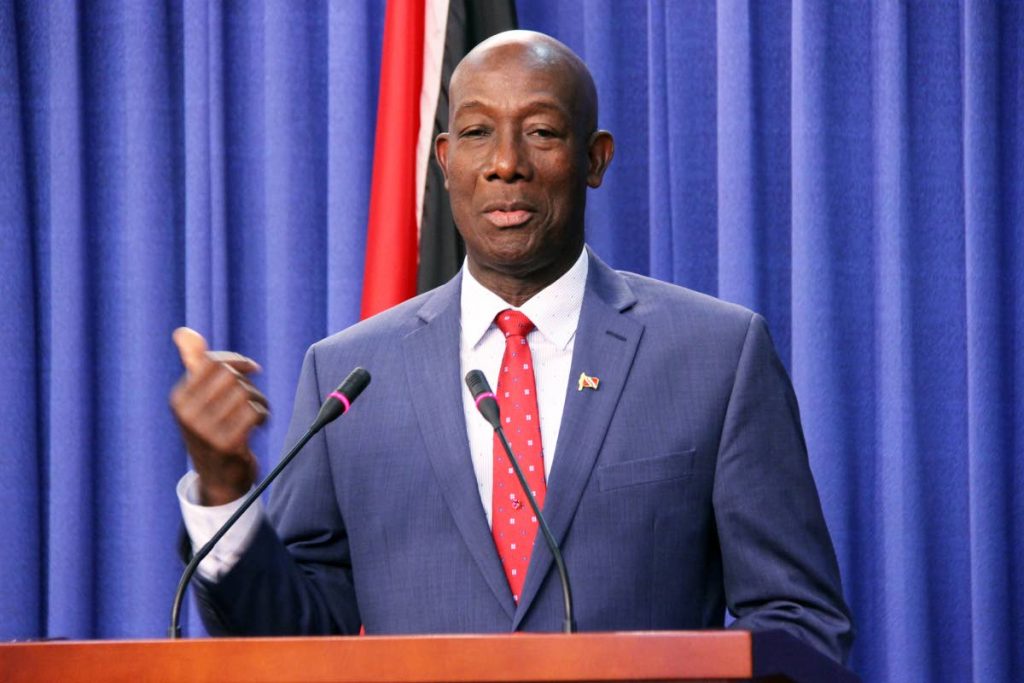PORT OF SPAIN, Trinidad (CMC)— The Trinidad and Tobago government Saturday outlined new protocols for entry into the country as it eased slightly some of the existing measures in place to curb the spread of the coronavirus (COVID-19).Prime Minister Dr Keith Rowley, speaking at a news conference, made it clear that it would be impossible for all nationals wanting to come home for the Christmas season to be accommodated.“This is the demand of the pandemic,” Rowley said as National Security Minister Stuart Young announced that the new measures would go into effect from November 15.Young said that individuals entering Trinidad and Tobago would now have to be in possession of a negative PCR test done two days prior to arrival, and that they would be placed in state quarantine facilities, mainly hotels, for the next seven days, and released only after testing negative after the sixth day in quarantine.Young said that as of last Friday, 13, 042 nationals and residents have applied to re-enter the island and that 7, 204 exemptions had been granted.But he said he has noticed a new situation, where many persons who had been allowed to leave the country, were now trying to re-enter as quickly as possible having completed the purpose of their visit overseas.Young made it clear that these people would have to join the queue of individuals wishing to return home. He said Trinidad and Tobago were undertaking repatriation flights from Barbados and the United States and to lesser extent Canada every 10 days.“It would not be possible for everybody who wants to come home for the Christmas to do so,” Rowley said, announcing also that restaurants would now be allowed to have in-house dining at 50 per cent capacity, with the relevant social distancing in place.Rowley said that food outlets inside cinemas would be allowed to operate once the patrons are keeping to the protocols of wearing masks and engaged in social distancing. He said that all sporting teams engaged in preparation for international competitions will be allowed to engage in full activity and that the State-owned Caribbean Airlines would be encouraged to improve schedule flights between Trinidad and Tobago.But Rowley said that the restrictions in place regarding the operations of bars and the entertainment industry would remain “for a little while longer” noting that the consumption of alcohol and congregation of individuals were among the factors that could contribute to the spread of the virus.Rowley told reporters that given the progress made to date, he was also hoping that schools would reopen in January next year, reiterating that Trinidad and Tobago would have to continue with the efforts aimed at curbing the spread of the virus, for which there is no known cure or vaccine.He said he is aware of people being impatient at the situation and “grasping for a perfect state now,” but he warned “if we do not let the science guide us…we would throw out everything we have done in the past”.He warned against joining other countries that were being forced to enter into lockdown situations, saying that the present situation is “miniscule if we have to go back to the state we were in in April”.Rowley said it is “not my intention to risk the gains we have made,” adding “I am hoping to get our students back in school in January” but that there will be no Carnival celebrations here next year.Trinidad and Tobago has recorded 5, 798 positive cases of the virus with 111 deaths.Jamaica Observer

Related Posts
Add A Comment
